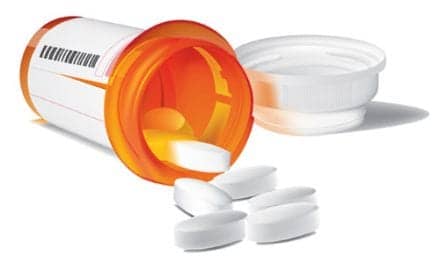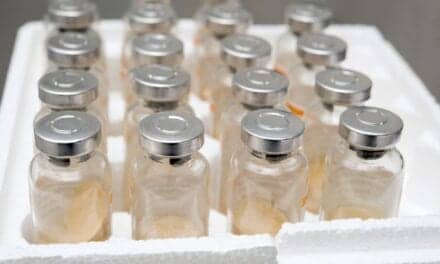aTyr Pharma Inc announced plans to initiate a phase 2 study of its lead therapeutic candidate, efzofitimod, in patients with systemic sclerosis-associated interstitial lung disease (SSc-ILD).
The expansion of the clinical trial follows the clearance of an Investigational New Drug (IND) application by the US Food and Drug Administration (FDA), which the company disclosed in a regulatory filing on Feb. 8.
Efzofitimod is a potential first-in-class immunomodulator that downregulates innate and adaptive immune responses in uncontrolled inflammatory disease states via selective modulation of neuropilin-2. The company is currently investigating efzofitimod in patients with pulmonary sarcoidosis, a major form of ILD, in a global Phase 3 study called EFZO-FIT.
“We are thrilled to expand our efzofitimod clinical program to include a Phase 2 study in SSc-ILD with clearance of this IND, which is supported by preclinical data showing efzofitimod reduces lung and skin fibrosis in an animal model of SSc-ILD and clinical data demonstrating proof-of-concept for efzofitimod in patients with pulmonary sarcoidosis,” says Sanjay S. Shukla, MD, president and CEO of aTyr, in a press release. “ILD is the leading cause of death in patients with scleroderma. Current treatment options may help to slow lung function decline but do not impact underlying disease or improve quality of life. There remains a medical need for more effective and safer therapies for patients with this debilitating disease.”
The phase 2 study is expected to be a randomized, double-blind, placebo-controlled, proof-of-concept study to evaluate the efficacy, safety, and tolerability of efzofitimod in patients with SSc-ILD. This is expected to be a 28-week study with three parallel cohorts randomized 2:2:1 to either 270 mg or 450 mg of efzofitimod or placebo dosed intravenously monthly for a total of six doses.
The study intends to enroll 25 patients with progressive disease who are currently receiving background mycophenolate therapy (standard of care) at multiple centers in the US. Skin biopsies are intended to be performed at baseline and week 12. The primary objective of the study will be to evaluate the efficacy of multiple doses of intravenous efzofitimod on pulmonary, cutaneous, and systemic manifestations in patients with SSc-ILD. Secondary objectives include safety and tolerability.
Efzofitimod has been shown to reduce lung and skin fibrosis in animal models of SSc and idiopathic pulmonary fibrosis. The pathology of SSc-ILD is driven by the same immune cells that are central to pulmonary sarcoidosis pathology, and NRP2 is upregulated on these cells. Efzofitimod has also been shown to reduce key pro-inflammatory markers that are central to this pathology in a clinical study in patients with pulmonary sarcoidosis. Efzofitimod has been granted U.S. FDA orphan drug designation for the treatment of SSc and Fast Track designation for the treatment of SSc-ILD.
“Efzofitimod’s clinical proof-of-concept in sarcoidosis as well as the translational effects seen in an animal model of SSc-ILD provide strong rationale to evaluate this novel immunomodulator in patients with ILD that results from an underlying rheumatologic condition such as scleroderma,” says Kristin Highland, MD, director of the Rheumatic Lung Disease Program at the Cleveland Clinic, in a press release. “The prospect of a new therapeutic target for scleroderma-associated lung disease is welcome news for patients suffering from this disease which has limited treatment options.”
Efzofitimod has been granted FDA orphan drug designation for SSc and Fast Track designation for SSc-ILD.










